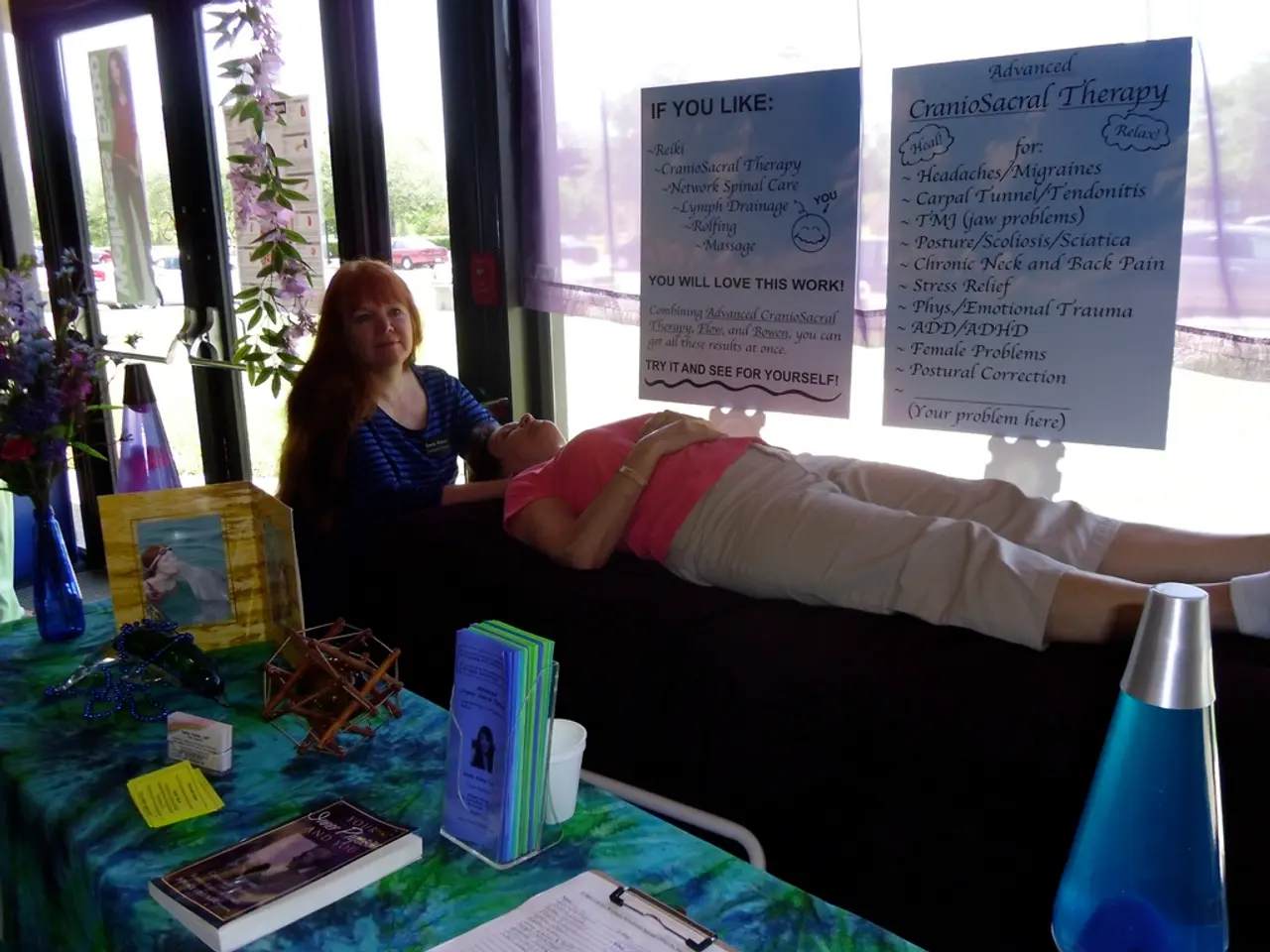Techniques to Lessen Anxiety Levels for Enhanced Mental Health and Overall Wellness
Anxiety, a mental health challenge that affects millions worldwide, is characterized by excessive worry, fear, or nervousness about situations, events, or experiences. Fortunately, anxiety is a treatable condition, and many exercises and techniques can be used to alleviate its symptoms.
Deep Breathing and Diaphragmatic Breathing
One of the most effective and accessible anxiety reduction exercises is deep breathing. Inhaling deeply through the nose, focusing on expanding the abdomen (belly breathing), promotes relaxation by regulating heart rate and blood pressure. Techniques such as 4-7-8 breathing (inhale 4 seconds, hold 7, exhale 8) or slow counted breathing can be particularly helpful.
Grounding Techniques
Grounding techniques, like the 5-4-3-2-1 sensory method, help bring awareness to the present moment. This method involves identifying five things you see, four you can touch, three you hear, two you smell, and one you taste. Body scans focusing on physical sensations without judgment can also be beneficial. Simple focus on your feet can redirect attention from anxiety.
Yoga-Inspired Stretches
Yoga-inspired stretches, such as the forward fold, legs-up-the-wall pose, and bridge pose, help activate the parasympathetic nervous system, reduce physical tension, and redirect attention away from anxious thoughts. These poses are designed to relieve neck and shoulder tension, aid circulation, and relaxation, and balance hormones related to anxiety.
Cold Water Techniques
Splashing cold water on the face stimulates parasympathetic activity, increases circulation, and endorphin release to reduce anxiety.
Mindfulness Meditation
Mindfulness meditation, a practice rooted in Buddhist traditions, helps individuals become more aware of their thoughts and emotions, allowing them to detach from anxiety-producing thoughts and achieve greater mental clarity.
Other Anxiety Reduction Exercises
Guided imagery, a variation of visualization where a guide or audio recording leads you through a relaxing mental journey, can also be beneficial. Journaling, a therapeutic technique that can help individuals process their emotions and gain clarity on the sources of their anxiety, is another helpful tool.
Consistency is Key
To maximize the benefits of these exercises, find the ones that work best for you and incorporate them into your daily routine. Always consult with a healthcare professional to develop a treatment plan that best suits your needs. Incorporating anxiety reduction exercises into daily life is essential for consistency and long-term benefits.
Remember, anxiety can arise from various triggers, including work stress, personal issues, or health concerns. If left unaddressed, chronic anxiety can lead to depression, sleep disturbances, fatigue, and other negative consequences that significantly impair one's quality of life. By incorporating these effective anxiety reduction exercises into your daily routine, you can take a proactive approach to managing your mental health and improving your overall well-being.
Exercise such as deep breathing, which involves deep inhalation through the nose and focusing on expanding the abdomen, promotes relaxation and alleviates anxiety symptoms. Grounding techniques like the 5-4-3-2-1 sensory method and body scans can help bring awareness to the present moment and distract from anxious thoughts.
Yoga-inspired stretches, like the forward fold, legs-up-the-wall pose, and bridge pose, can activate the parasympathetic nervous system, reduce physical tension, and aid relaxation, ultimately benefitting mental health. Cold water techniques, such as splashing cold water on the face, stimulate parasympathetic activity, increase circulation, and endorphin release to reduce anxiety.
Mindfulness meditation, rooted in Buddhist traditions, helps individuals become more aware of their thoughts and emotions, allowing them to detach from anxiety-producing thoughts and achieve mental clarity. Other anxiety reduction exercises, such as guided imagery and journaling, can help process emotions, gain clarity on anxiety triggers, and contribute tolong-term mental health improvement.
Consistency is key to achieving the benefits of these exercises; incorporating them into a daily routine can help manage mental health and improve overall well-being. Anxiety can stem from various triggers, including work stress, personal issues, or health concerns, and if left unaddressed, chronic anxiety can lead to depression, sleep disturbances, fatigue, and other negative consequences that significantly impair quality of life.
By proactively addressing anxiety through regular exercise and treatment from healthcare professionals, individuals can improve their mental health and overall health-and-wellness, fostering a healthier mind and body.




